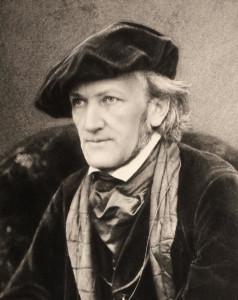(Here is the Introduction to this series and the First Precaution.)
The second precaution against the world regards the attraction that temporal goods have for us. A family has certain financial needs that a religious does not. But for the lay person, as well as for the religious, it is a question of distinguishing needs from desires.
The last precaution against the world is to guard ourselves against thinking about events in the community. “Never be scandalized or astonished at anything you happen to see or learn of, endeavoring to preserve your soul in forgetfulness of all that.” “Even if you should live among [literal] devils you should not turn the head of your thoughts to their affairs, but…strive to keep your soul occupied purely and entirely in God.”
This aside about devils opens up an interesting clue to the meaning of this precaution. If you call to mind the famous drawing by Martin Schongauer of Saint Antony’s temptations, you will remember that the demons are poking at the saint, pulling his beard and so on. And he is completely tranquil and serene in the center of all this mischief. We are familiar with interpreting this in terms of thoughts. For example, when we pray, are we not immediately pushed and pulled in all directions by distractions? And does not the monastic tradition teach us that these distracting thoughts are, much more often than not, the product of demonic intrusion? The remedy is simply to return to the Psalms, or whatever meditation we have undertaken.
Now, Saint John Cassian says that the hermit fights the devil one on one. But the cenobite, the monk in community, fights the devil in his brothers. Does not this suggest that the distracting behavior of my brother is an occasion for the devil to turn my thoughts away from God? John of the Cross agrees: “There is never a lack of devils who seek to overthrow the saints; God permits this [state of affairs] in order to prove and try religious.”
John makes it clear that one of the most problematic temptations is to speak about what we’ve seen with another monk. He says that we should never do this. When we fail in this way, do we not often excuse ourselves ahead of time by claiming that we are acting out of love and concern? At a minimum, before we say anything, we might ask these questions. If the brother is truly in danger or is truly endangering others, who should know about it? Who would have the authority to address it? And then, how likely is it that the person in authority, abbot or novice master or whoever is the overseer in this case, doesn’t know what’s happening? How motivated am I, really, by love for the brother? Is it likely that I am in fact motivated by my own demand for others not to impinge on my peace of mind?
Now apply all that I’ve said to the hyper-reactive world of social media!
Once again, we see that the “worldliness” in this case is about a certain level of comfort, safety and self-insulation, a need to control my environment rather than adapt. We see also a way of identifying the three enemies of the soul with the three parts of the soul. The flesh clearly refers to temptations that arise from the concupiscible part of the soul. The devil, who we said earlier is connected to the intellect, refers to temptations that afflict the rational part of the soul. And the middle part of the soul, the irascible, is that part that deals with danger, discomfort and so on. Is it not often the case that when we feel the need to speak about something scandalous or merely annoying that we are moved by anger or sadness? God gave us anger to drive away true temptations, not to drive a wedge between ourselves and other. And sadness is a sign that something that we valued is being taken away. It is an invitation to let go of identifying myself with that imagined good, to open within myself a space for the True Good, Jesus Christ Himself. The world would encourage our false self to just such identifications, and the false self by its nature wishes to separate from others. Thus the devil puts us at odds, labeling others as either friends or enemies, depending on whether they can provide us with the goods to which we are accustomed or which we feel are our due. The true self, the life of Christ within, grows by constantly opening itself to a divine perspective, a boundless love that gives without counting the cost and has compassion on all.


